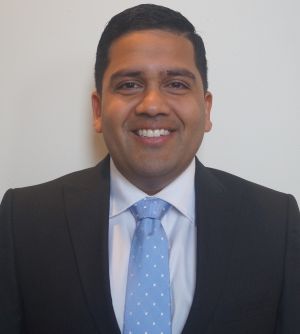
August is the National Immunization Awareness Month that highlights the importance of vaccination for people of all ages. Dr. Saisho Mangla, our guest contributor, writes about the important role of vaccines in keeping everyone healthy.
THE SINGLE MOST IMPORTANT ACTION YOU CAN TAKE
What if I told you that a single action could save your child from multiple deadly infections and also benefit the whole community? What if I told you that a single action could save your community half of a million dollars? What if I told you that a single action could prevent the resurgence of multiple eradicated deadly diseases?
This single most important action you can take for your child is getting regularly scheduled vaccines. Children are exposed to many different diseases in schools and are at increased risk of spreading illness due to poor hand washing and not covering their coughs or sneezes.1
If children are not vaccinated, they are more likely to contract and spread vaccine-preventable diseases such as measles. These diseases can also spread to babies too young to have a full vaccination or those with a weakened immune system. When children become ill, parents often have to miss several days from work during recovery, which can be costly and difficult.
Vaccination does not stop in childhood because the protection from vaccines wears off over time. This is why it is just as important for adolescents and adults to get additional vaccines to extend the immunity. Some states may also require updated vaccinations before entering college.1
HERD IMMUNITY IS NOT ABOUT COWS
As a pediatrician, I often hear the argument that “my child did not get the vaccine and is fine.” I caution against this reasoning and stress the concept of herd immunity, where vaccination of the majority in a population protects others that are vulnerable to the disease. While herd immunity is effective in areas where most vaccine preventable diseases have been eradicated, there are still areas of the world where diseases such as measles are common. Even in America, herd immunity is at risk in states that allow nonmedical exemptions for vaccines based on religious or philosophical beliefs. More and more children are entering the school unvaccinated, expanding areas of the country where outbreaks of vaccine-preventable diseases are possible.2,3
THE 2013 NEW YORK CITY (NYC) MEASLES OUTBREAK
Delaying vaccination also poses a risk when unvaccinated travelers are infected in other countries then return home. One such incident is described in a recently published paper in JAMA Pediatrics that highlights the public health consequences of the 2013 measles outbreak in NYC.4 Here is a summary of the event:
Origin
- While infectious with measles, an unvaccinated adolescent returns home to New York City from London
Consequences
- 3,351 New Yorkers are exposed to measles
- 58 people contract measles, making this the largest outbreak of measles in NYC since 1992
Vaccination Status
Of the 58 people who contracted measles,
- 45 patients are at least twelve months old and unvaccinated due to parental refusal or delay
- 12 patients are less than twelve months old and too young for measles vaccination
- 1 patient is a vaccinated adult
Of the 3,351 exposed contacts who do not contract measles,
- 2,214 have received two doses of measles vaccine
- 376 have received a single dose of measles vaccine
- 335 have received no vaccine
- 426 have an unknown vaccine status
Cost of the 2013 Outbreak
- 87 staff members from twelve bureaus of Department of Health and Mental Health work to address the outbreak
- 10,054 hours are spent in response to the outbreak
- $394,448 is the direct cost of the outbreak
The 2013 measles outbreak in NYC outbreak illustrates that the United States continues to be at risk for vaccine-preventable diseases.
AUGUST IS THE NATIONAL IMMUNIZATION AWARENESS MONTH
In a month that is dedicated to immunization awareness, I am concerned over the news that continues to star in our headlines. Just last week, I came across an article titled, “CDC monitoring measles cases in 21 states, including North Carolina.”5,6 As of July 2018, there have been 107 cases of measles so far, in comparison to the 118 total in all of 2017. The Centers for Disease Control and Prevention (CDC) reports that the majority of these individuals were unvaccinated.6
Vaccination does not end in childhood; it is just as important to get regular re-vaccination in adulthood as immunity starts to weaken. Future mothers can get their pregnancy off to a healthy start by making sure their vaccines are up to date. The immunity that a mother has developed is passed on to the baby through breast milk and protects the baby during the first several months of life when the baby is too young to receive vaccines.1 Pregnancy is also an important time for mothers to become familiar with the vaccines their child will receive and ask any questions or address concerns with their physicians.
The increase in nonmedical vaccine exemptions and the rise in the number of measles outbreaks in 2018 is troubling. We must hold ourselves accountable for our health and build relationships with health care providers to get the best medical care. No intervention is without risk and there are potential adverse reactions to vaccines. It is important to discuss your concerns with your physician to come to a mutual decision on vaccination risks and benefits. Imagine the good that could be done with the resources allocated in the New York City outbreak. Imagine the community programs and initiatives that could be funded with such resources. At a time when healthcare costs continue to skyrocket, we must work together as a community to take care of our population.
Author Bio:

Saisho Mangla, DO is a board certified pediatrician who completed his training at Lehigh Valley Children’s Hospital in Allentown, Pennsylvania. He will be pursuing further training in preventive medicine and public health at Loma Linda University.
References:
- https://www.nphic.org/niam
- http://www.contemporarypediatrics.com/pediatric-immunization/state-anti-vax-union?rememberme=1&elq_mid=2783&elq_cid=110181
- Olive JK, Hotez PJ, Damania A, Nolan MS (2018) The state of the antivaccine movement in the United States: A focused examination of nonmedical exemptions in states and counties. PLoS Med 15(6): e1002578. https://doi.org/10.1371/journal.pmed.1002578
- Rosen JB, Arciuolo RJ, Khawja AM, Fu J, Giancotti FR, Zucker JR. Public Health Consequences of a 2013 Measles Outbreak in New York City. JAMA Pediatr. Published online July 30, 2018. doi:10.1001/jamapediatrics.2018.1024
- https://wtkr.com/2018/08/15/cdc-monitoring-measles-outbreak-in-21-states/
- https://www.cdc.gov/measles/cases-outbreaks.html
